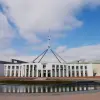
Why Many Feel Global Economy Isn’t On Their Side
During my adult life, I have never experienced what it’s like to live in a “good” economy. Starting with the global financial crash in 2008, which hit just as I began studying economics, the world seems to have lurched from crisis to crisis and the UK economy even more so.
Some of those crises, like the crash and COVID , are sudden shocks. Others have been more gradual, such as increasingly unaffordable housing or the rising dominance of the world’s ultra rich.
As I explore in my new book, Why We’re Getting Poorer , the result of these crises is an economic system which works for some much more than it does for others. Here are four reasons why you may be feeling let down.
Like many of his fellow leaders across the world , the British prime minister, Keir Starmer, is aiming to make economic growth the primary mission of his government. And understandably so.
A growing economy puts more money in people’s pockets and brings other benefits such as low unemployment. But economic growth is not easy (in the UK it has been poor for a long time ).
That’s because there’s no GDP dial that a prime minister or president can simply turn up. Research shows that economic growth is an amorphous and difficult goal which depends on many factors – geopolitical , demographic , technological – outside any single country’s control.
One option is to focus on achievable goals around investment , like the public investments of £113 billion on homes, transport and energy planned in the UK. But big projects can take a long time to build and develop, so even if they do boost growth, it can take a while for households to feel the benefits.
Against the backdrop of low growth in the UK has been high inequality , under Conservative and Labour governments. And again, inequality is an international issue .
The wealth of the richest people in the world skyrocketed over COVID , buoyed in many cases by the increased importance of the tech sector during lockdowns. Even before the pandemic, wealth inequality was a problem across the globe .
This imbalance has given the very richest opportunities to buy up commercial competitors, indulge in space travel and control large parts of the media, exerting extreme economic, social and political power. Needless to say, their economic priorities are not the same as everyone else’s.
Meanwhile, communities and regions may be left behind, with declining physical and social infrastructure . People living in hollowed out areas where incomes and opportunities are limited are unlikely to feel that the economic system is working for them.
Globalisation has made a lot of people – in places like China, India and Brazil – better off . But it is not a system which ensures economic benefits for everyone .
With global competition, big businesses are often under pressure to reduce costs. Free trade deals have often failed to enforce labour standards or redistribute gains to poorly paid workers, and in many cases simply made the rich richer .
Such a distorted form of economic governance, where large sections of society end up feeling left behind was bound to provoke a response. Some would link it to recent political events like Brexit and the presidencies of Donald Trump , whose international tariffs are a clear attempt to reverse the rise of globalisation .
Since the pandemic, more fault-lines have been exposed. The global economy has become too dependent on certain regions, epitomised by Taiwanese dominance in the manufacturing of semiconductors , or European reliance on Russia for gas and oil .
Recent years have also seen supply chain bottlenecks , leading to shortages of goods including cars , phones and even salad ingredients . Inflexible global systems have been ineffective, and internationally agreed fixes are hard to achieve.
World news at the start of 2020 was dominated by the massive wildfires raging across Australia . At the start of 2025, Los Angeles burned .
As the global climate shifts and lurches, extreme weather events are becoming more common. Floods, hurricanes and extreme temperatures look to be the likely outcome .
When sea levels rise, countless coastal cities will experience flooding, and many Pacific islands may disappear altogether. The UN’s climate science advisory group, the Intergovernmental Panel on Climate Change (IPCC) suggests that humanity will struggle with food production, disease and massive migration.
This will all result in huge economic costs , impeding growth and disrupting livelihoods across the world. According to the IPCC, the impacts could range from extreme weather events disrupting infrastructure to changing weather reducing yields in agriculture, forestry and fishing.
Yet many countries appear to be backtracking on their commitment to reducing emissions. It seems they would prefer to deal with the fallout of climate change rather than invest in potential solutions like carbon taxes , walkable cities or alternative fuels. But such acts of self-harm are not a sound basis for a prosperous economy, society or planet.
Cahal Moran does not work for, consult, own shares in or receive funding from any company or organisation that would benefit from this article, and has disclosed no relevant affiliations beyond their academic appointment.


